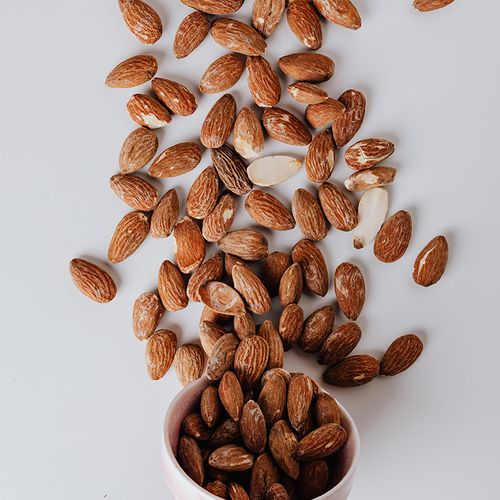More than 45 million Americans annually seek medical treatment for frequent or severe headaches. Doctors have identified dozens of headache triggers, including stress, air pollution and weather changes. but one of the main triggers—especially for migraines—is diet.
At least 30% of migraine patients have one or more food triggers. In some uses, a single food may be responsible. Most patients have combination triggers—for example, red wine plus a high level of stress plus an extra cup of coffee in the morning.
Everyone who experiences migraines and other types of headaches should keep a food and lifestyle diary. Write down the foods and beverages you consume. Also note patterns that precede headaches—exercise activities, changes in sleep, stress level, menstrual cycle, etc. After a few weeks, review your diary and identify likely connections.
What To Avoid
- Caffeine is one of the main headache triggers. Some people get headaches when they consume any caffeine. Others get headaches when they consume less than they usually do and then need caffeine to relieve the headache.
If you drink coffee or other caffeinated beverages regularly, blood vessels in the brain become sensitized to the caffeine's effects. Eliminating or cutting back on caffeine causes rebound headaches in about half of patients.
People with chronic headaches often are ad-vised to eliminate caffeine completely. Instead of quitting abruptly, gradually taper off. If you're used to drinking three cups of coffee a day, drink only two cups daily for a week. For several days after that, substitute decaf for one of your daily servings. Then dilute your regular coffee with decaf until you quit entirely.
- High-fat foods. Significantly reducing dietary fat decreases the frequency and intensity of headaches. Try to limit total fat intake to 20% of total calories. In particular, avoid saturated fats (mainly found in meats, fast food and full-fat dairy products) and trans fats (often called "partially hydrogenated oils" on labels and found in margarines, snack foods and packaged baked goods).
Tyramine is a natural by-product of the amino acid tyrosine. Foods that are aged or fermented tend to be high in tyramine, which can cause vascular spasms that result in migraines.
Main offenders: Red wine, aged cheeses including blue and cheddar, deli meats and overripe bananas. Stick with fresh meats and cheeses such as cottage cheese, ricotta and fresh mozzarella. White wine and beer have less tyramine than red wine —but any alcohol can trigger headaches.
- Food additives, including monosodium glutamate (MSG), nitrates and nitrites, dilate blood vessels and trigger migraines in people who arc sensitive to these additives. Nitrates and nitrites are found mainly in processed meats, such as hot dogs, bacon and salami. MSG is added to literally thousands of processed foods. Check food labels, and avoid products that con-tain any of these additives.
Foods That Help
- Omega-3 fatty acids. The healthful fats in fish, flaxseeds and olive oil can reduce migraines by stimulating the production of body chemicals that inhibit inflammation in blood vessels in the brain.
Recommended: Two to three servings of fish weekly. Also, have one tablespoon daily of ground flaxseed (you can add it to cereal or smoothies or sprinkle on salads or yogurt). Cook with olive oil or canola oil, which contain more omega-3s than other vegetable oils.
- Magnesium. There is some evidence that adequate magnesium intake can help women prevent headaches (including migraines) associated with menstruation. The recommended daily intake for most women is 320 milligrams (ng). High-magnesium foods include whole grains, nuts, seeds, soy foods, legumes and dark green vegetables.
Examples: Almonds, two tablespoons (86 mg of magnesium)... artichoke, one medium (180 mg)...brown rice, two-thirds cup (57 mg).. peanut butter, two tablespoons (51 mg)...pumpkin seeds, two tablespoons (152 mg)...cooled spinach, one-half cup (78 mg)...tofu, one-half cup (118 mg).
- Water helps prevent dehydration—a common cause of headaches. Try to drink eight eight-ounce glasses every day.
Natural Remedies for Heartburn
Many people who suffer from heartburn take Many antacids or expensive prescription medication, such as esomeprazole (Nexium) and lansoprazole (Prevacid). These treatments can help but often cause side effects, such as diarrhea and dry mouth.
Heartburn. a sharp, burning pain under the rib cage, occurs when stomach contents "hack up" (reflux) into the esophagus.
Chamomile, ginger and deglycyrrhizinated licorice have long been used (in tea, extract and tincture) to relieve heartburn as well as indigestion and intestinal irritation. Their effectiveness is supported by anecdotal evidence.
For relief proven in clinical studies, try pectin, a substance found in the outer skin and rind of fruits and vegetables. Apples and bananas are among the best sources of pectin. If you suffer from heartburn, try eating an apple (do not choose green or other tart varieties) or a banana to see if it relieves your symptoms.
Pectin supplements, which are available at most health-food stores, are another option. Take at the onset of heartburn until it subsides. For dosage, follow label instructions. Pectin supplements are generally safe but may interfere with the absorption of some medications, so check with your doctor before trying this supplement.
Caution: Chronic heartburn (more than twice a week) may indicate gastroesophageal reflux disease (GEM)), a condition that should be treated by a gastroenterologist.
